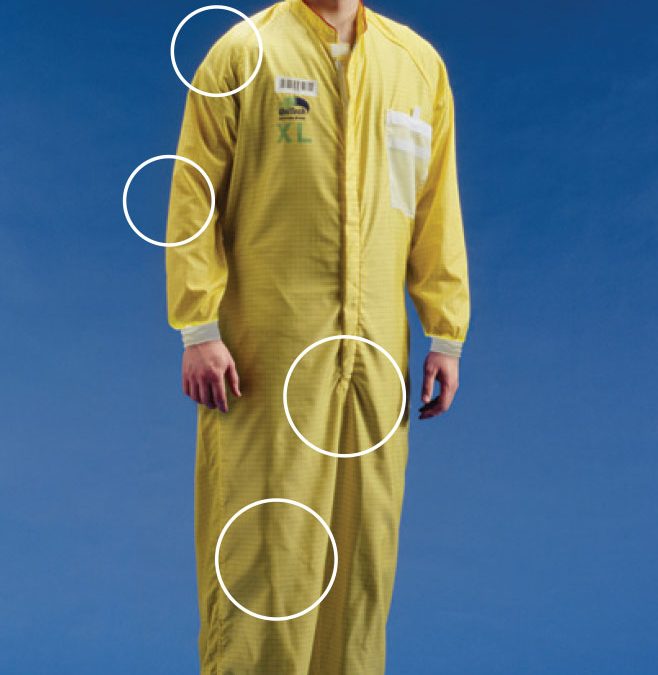 Independent Testing Compares Specific Launderable and Single-Use Coveralls
Independent Testing Compares Specific Launderable and Single-Use Coveralls
Fabric Breaking Strength
Nuclear protective clothing must be constructed of textiles strong enough to withstand the demands of close-quarter and difficult work environments, especially at high stress points such as knees, elbows, shoulders, and crotch. A fabric failure in a contaminated area creates a risk for contamination. In this test, UniTech’s ProTech Plus® was the hands-down winner.
Fabric Seam Strength
Nuclear protective clothing is only as strong as its weakest seam, especially since arduous worker activity such as climbing and crawling puts significant stress on shoulder and crotch seams. UniTech’s fabric cohesiveness and double-felled seams likely both contributed to the contrast in fabric seam strengths between launderable (particularly ProTech Plus) and single-use garments
Fabric Comfort
 Comfort matters. Bending rigidity is a subtle characteristic for nuclear protective clothing, but a worker involved in a task for hours will likely feel more comfortable in a garment that features more supple fabric. ProTech Plus offers remarkable performance in this regard, especially given its strength. Shear rigidity, measured in the chart at right, is a distinct measure for protective clothing as body movements apply wide ranges of diagonal compression to most areas of the garment. Again, a long wearing period will amplify a sense of discomfort from a full body garment. Here, ProTech Plus is the clear winner
Comfort matters. Bending rigidity is a subtle characteristic for nuclear protective clothing, but a worker involved in a task for hours will likely feel more comfortable in a garment that features more supple fabric. ProTech Plus offers remarkable performance in this regard, especially given its strength. Shear rigidity, measured in the chart at right, is a distinct measure for protective clothing as body movements apply wide ranges of diagonal compression to most areas of the garment. Again, a long wearing period will amplify a sense of discomfort from a full body garment. Here, ProTech Plus is the clear winner
Fabric Comfort – Heat Stress
 Independent tests for ISO 11092 fabric insulative performance and vapor transport performance both show UniTech’s ProTech Plus as a strong choice (and the best for fabric insulative performance) and OREX® Ultra PVA as the least attractive option – in the case of vapor transport, by a very significant margin.
Independent tests for ISO 11092 fabric insulative performance and vapor transport performance both show UniTech’s ProTech Plus as a strong choice (and the best for fabric insulative performance) and OREX® Ultra PVA as the least attractive option – in the case of vapor transport, by a very significant margin.
Summary
These tests confirm that UniTech is performing well in delivering worker safety and comfort. They offer us valuable feedback on ways UniTech’s continued research and development can foster further innovation and next-generation enhancements to the garments and services we provide. As always, we welcome your comments and feedback.

